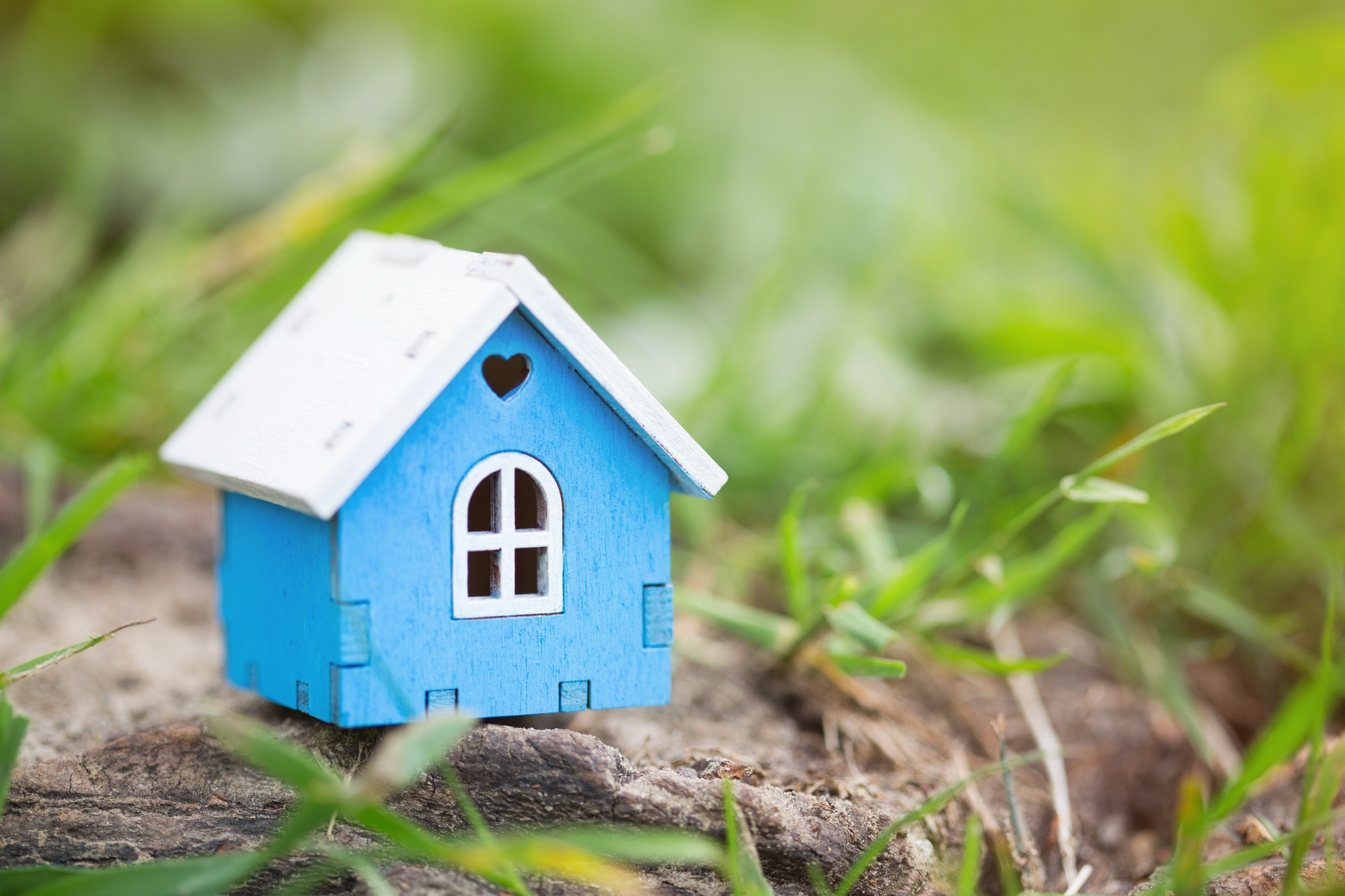Introduction
The FHA 203k loan is a unique program designed to help homebuyers in Iowa finance both the purchase of a property and the cost of necessary renovations or repairs. Toan is backed by Federal Housing Administration and offers a convenient way for individuals and families to turn a fixer-upper into their dream home. This article will explore benefits and requirements of fha 203k loan iowa and the unique advantages fha loan iowa program tailored for property improvements.
What is an FHA 203k Loan?
The “203k” in the FHA 203k loan refers to Section 203(k) of the National Housing Act, which outlines this particular loan program. It’s aimed at encouraging the revitalization and renovation of older or distressed properties by providing a convenient financial solution that includes the costs of home improvement or rehabilitation.
Standard 203k and Limited 203k. The Standard 203k is suitable for more extensive renovations, structural repairs, and projects exceeding $35,000. On the other hand, the Limited 203k is designed for smaller-scale renovations, typically capped at $35,000, focusing on minor upgrades and improvements.
How Does It Work?
The FHA 203(k) loan works by allowing borrowers to finance both purchases of the cost of renovations into a single mortgage. Here’s a breakdown of how it typically operates:
1. Identifying a Property: Borrowers look for properties that require renovation or repairs.
2. Loan Application: Borrowers apply for an FHA 203(k) loan through an approved lender. The application process involves providing details about the property, proposed repairs, and personal financial information.
3. Property Appraisal and Inspection: An FHA-approved appraiser assesses the property’s current value and determines its post-renovation value. The appraiser also identifies the necessary repairs and estimates their costs.
4. Consultant or Contractor Selection: For standard 203(k) loans, borrowers hire a HUD-approved 203(k) consultant or contractor to create a detailed proposal outlining the scope of work.
5. Renovation Process: Borrowers start the renovation or repair work, following the guidelines outlined in the project proposal. The 203(k) consultant or contractor oversees the project, ensuring compliance with FHA standards.
6. Mortgage Payments: After the project is complete, borrowers resume making regular mortgage payments, now including the financed renovation costs.
Types of FHA 203k Loans
The FHA 203(k) loan program offers different options to accommodate various renovation needs. Here are the main types:
1. Standard 203(k) Loan: This option is suitable for major renovations, structural repairs, and projects that require architectural plans or engineering drawings. It involves a more complex process and allows for significant improvements, such as room additions or structural changes.
2. Limited 203(k) Loan (or Streamline 203(k)): Designed for smaller projects with renovation costs that do not exceed $35,000, this option is more streamlined and has simpler application and approval processes. It’s ideal for minor repairs, cosmetic updates, and non-structural improvements like kitchen or bathroom remodels.
Each type of 203(k) loan has specific eligibility requirements, and the choice between the two depends on the scope and scale of the planned renovations or repairs. The Standard 203(k) loan is more comprehensive and suitable for larger projects, while the Limited 203(k) loan offers a simpler process for smaller-scale improvements.
Benefits of FHA 203k Loans in Iowa
FHA 203(k) loans offer several advantages to homebuyers and homeowners in Iowa, contributing to the state’s real estate market in unique ways. Here are some benefits specific to Iowa:
- Renovation Financing: Iowa, like many states, has a mix of properties, including older homes that might need upgrades or repairs. The FHA 203(k) loan allows borrowers to finance both the refinance of a property and its renovation costs into a single mortgage. This is beneficial for those eyeing properties in Iowa that require improvements.
- Historic Property Preservation: Iowa has a rich historical heritage, including historic homes and buildings. The 203(k) loan assists in preserving these properties by providing financing for necessary renovations or repairs, contributing to the state’s cultural preservation efforts.
- Rural Property Rehabilitation: In rural areas of Iowa where properties might need rehabilitation, the FHA 203(k) loan supports the revitalization of these homes. This is particularly significant for maintaining and improving housing stock in smaller towns and rural communities.
- Disaster Recovery Assistance: Iowa, prone to weather-related challenges like floods or storms, might have properties in need of repairs. The 203(k) loan can assist homeowners in financing renovations and help in recovery efforts after natural disasters.
- Community Revitalization: By funding the rehabilitation of distressed properties, the 203(k) loan contributes to enhancing the overall appeal and functionality of Iowa’s communities. This uplifts neighborhoods, potentially increasing property values and fostering community development.
- Job Creation: Through stimulating renovation projects, these loans create job opportunities in Iowa’s construction and renovation industries. This benefits local contractors, laborers, and suppliers, supporting economic growth and employment.
- Accessibility to Homeownership: For first-time homebuyers or those with limited financial resources, the low down payment requirement (as low as 3.5%) and flexible credit score criteria of FHA 203(k) loans in Iowa make homeownership more attainable.
The Final Touches
The final touches in an FHA 203(k) renovation project can truly bring the vision to life, turning a property into a personalized and functional space. As the project nears completion, attention to detail becomes crucial:
- Interior Finishes: This phase involves adding the finishing touches to the interiors. It includes installing fixtures, such as lighting, faucets, and appliances. Flooring, trim work, and painting contribute to the aesthetic appeal.
- Exterior Enhancements: Improving the property’s curb appeal is essential. Landscaping, exterior painting, fencing, and driveway repairs or installations can uplift the overall look of the property.
- Functional Upgrades: Consider incorporating smart home features or energy-efficient appliances and systems. Upgrading to modern, eco-friendly options not only enhances the property but can also reduce long-term utility costs.
- Quality Inspection: Before the final sign-off, a thorough inspection ensures that all renovations are completed according to plan, meet quality standards, and comply with FHA guidelines. This step helps address any remaining issues before the project’s completion.
- Documentation and Records: Keep detailed records of all renovation expenses, including receipts and invoices. This documentation is essential for the lender’s final review and may be required for loan closure.
- Final Walkthrough: Conduct a final walkthrough to ensure everything meets your expectations. Test all fixtures, appliances, and systems to confirm they’re functioning correctly.
- Closing and Loan Completion: Once the renovations are finished, the lender will conduct a final inspection to verify that the work is completed per the approved plans. After this, the loan closes, and borrowers transition to making regular mortgage payments that include the financed renovation costs.
- Enjoy Your Renovated Home: Finally, savor the accomplishment! Your renovated home reflects your vision, style, and effort. Enjoy the transformed space and make lasting memories in your revamped property.
The Connecticut Experience
Connecticut, nestled in the New England region, offers a unique experience characterized by a rich blend of history, culture, scenic landscapes, and modern amenities.
- Historical Significance: The state carries a deep historical heritage evident in its well-preserved landmarks and museums. Places like Mystic Seaport, a living history museum, and the Mark Twain House & Museum showcase its historical richness.
- Natural Beauty: Connecticut’s landscape offers diverse attractions. From the serene coastal towns along Long Island Sound to the scenic beauty of Litchfield Hills, its state parks invite outdoor enthusiasts for activities like hiking, picnics, and exploring historic sites.
- Cultural Vibrancy: The state hosts a vibrant cultural scene, boasting renowned theaters like the Goodspeed Opera House and museums like those found at Yale University, offering an array of artistic and educational experiences.
- Urban Lifestyle: Cities like Hartford, New Haven, and Stamford offer a dynamic urban lifestyle. They are hubs of commerce, entertainment, and dining, attracting both residents and visitors alike.
- Educational Excellence: With prestigious institutions like Yale University and the University of Connecticut, the state is a center for education, fostering innovation, research, and academic excellence.
- Diverse Communities: Connecticut offers diverse communities, each with its own character and lifestyle. From bustling urban settings to tranquil suburban neighborhoods, it caters to various preferences, making it an appealing place to live.
- Seasonal Charms: Each season brings its own charm. Vibrant fall foliage, winter sports, spring blossoms, and beach outings in the summer provide a range of activities throughout the year.
Finding the Right Property
Here are additional considerations when searching for a property in Connecticut:
- Local School Districts: Assess the quality of nearby schools if you have children or plan to start a family. School ratings and educational offerings might influence your decision.
- Transportation Accessibility: Evaluate the proximity to highways, public transportation options, commute times to work, and parking availability, depending on your transportation needs.
- Healthcare Facilities: Research the availability and proximity of hospitals, clinics, and healthcare providers in the vicinity.
- Neighborhood Crime Rates: Check local crime statistics and safety measures in the area to ensure a secure living environment.
- Environmental Factors: Consider any environmental concerns or advantages, such as proximity to water bodies, green spaces, noise pollution, or air quality.
- Future Growth and Appreciation: Investigate the economic stability and growth prospects of the area. Areas experiencing growth may offer better long-term property value appreciation.
- Home Inspection: Conduct a thorough home inspection to uncover potential issues with the property’s structure, plumbing, electrical systems, and other critical components.
- Legal Aspects: Ensure the property has clear legal titles, is free from liens or disputes, and complies with zoning laws or regulations.
- Energy Efficiency: Assess the property’s energy efficiency features or potential for improvements to reduce utility costs and environmental impact.
Conclusion
The FHA 203k loan presents a fantastic opportunity for homebuyers in Iowa to acquire properties in need of repairs or renovations and transform them into dream homes. With two main types—Standard 203k and Limited 203k—the program accommodates a wide range of renovation projects. It operates by combining the costs of purchasing a property and its necessary repairs into a single mortgage, simplifying the financing process.
FAQ
1. How do FHA loans differ from conventional loans?
- FHA loans have lenient credit score requirements and lower down payment options compared to conventional loans. They are insured by the government, reducing risk for lenders.
2. What advantages does one get by opting for an FHA loan in Florida?
- Flexible down payment options, competitive interest rates, and the ability to include renovation costs through the FHA 203(k) program.
3. Who qualifies for an FHA loan in Florida?
- Borrowers with a credit score of higher may qualify for a 3.5% down payment. Lower credit scores may be considered with a larger down payment. Stable employment, a debt-to-income ratio within acceptable limits, and meeting property eligibility criteria are also essential.
4. What are the property requirements for FHA loans in Florida?
- The property should be the borrower’s primary. It must meet minimum property standards by the FHA, ensuring it’s safe, habitable, and structurally sound.
5. Can I use an FHA loan for a fixer-upper in Florida?
- Yes, the FHA 203(k) loan allows borrowers to finance both the purchase and renovation costs of a property. This is particularly helpful for those seeking to renovate a fixer-upper in Florida.
6. Are there limits on FHA loan amounts in Florida?
- Yes, FHA loan limits vary by county in Florida. Borrowers can check the FHA loan limit for their specific county to determine the maximum loan amount they can qualify for.
Visit RateChecker to get free mortgage quotes!


